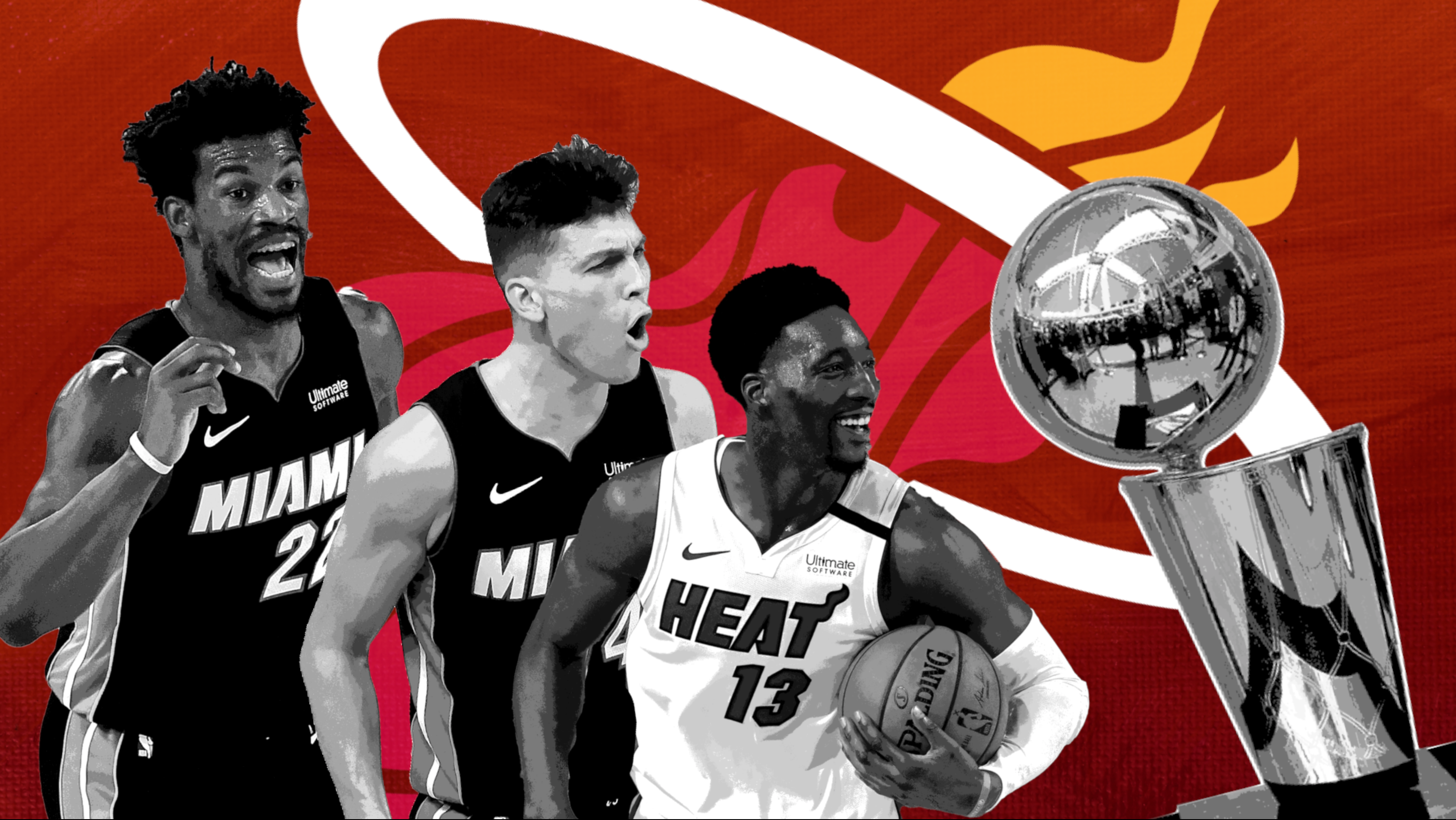| Detroit Free Press

How the Miami Heat went from ‘dark horses’ to the NBA Finals
SportsPulse: USA TODAY Sports’ Mackenzie Salmon looks at how Miami returned to relevancy and constructed the most dangerous team in the bubble.
The 2004 Detroit Pistons are having something of a renaissance. Everywhere you turn, NBA commentators and analysts are bringing them up.
Which must be nice for the players on that squad, who never got their due for their title, consecutive NBA Finals appearances, or run to six straight conference finals. Maybe the lack of a second title left them as an afterthought in the discussion of former NBA champions.
Though I suspect it has more to do with star power, because great NBA teams are associated with superstar players more than anything else, and those Pistons didn’t have a traditional NBA superstar.
I say “traditional” because for a three-year stretch, Pistons center Ben Wallace played with the impact of a superstar. He was a second-team all-NBA performer in 2003, 2004 and 2006, and made the third team two other seasons, which means for a five-year stretch, he was a top-15 player who made winning plays.
He just made them without the help of a crossover.
Another reason the basketball world overlooks them is because of who they beat in the Finals: the feuding, dysfunctional Lakers. Shaquille O’Neal and Kobe Bryant were as heavily favored to beat the Pistons then as LeBron James and Anthony Davis are to beat the Miami Heat now — only more so.
Because it was an upset, the narrative we remember — at least outside Michigan — is that the Lakers imploded. They did, to a degree.
And if the Heat beat this year’s Lakers in the Finals — the opener is tonight — history will similarly focus on what the favored team did wrong, which will be a shame, because these Heat are a lot like those Pistons.
The main reason gets back to the definition of superstar, and that both teams made the Finals without one, and that in the history of the NBA, teams without them almost never win the title.
As good as Wallace and Chauncey Billups and Rasheed Wallace and Tayshaun Prince were, none of them could gather the ball in the corner, pivot toward the court, back to the baseline, and then rise up and hit a contested fadeaway, as Bryant did in the 2004 Finals.
The Lakers had the two most talented players that series. The Pistons had the next five.
It is similar this season with James and Davis. They will be the two most gifted on the court. Yet as much as the roster comparisons look then and now, I’m not sure it’s the lack of a superstar narrative that draws comparisons between the Pistons and Heat.
It’s something more intangible. Something hard to define but easy to see. Something the Heat showed the minute they arrived in the bubble.
Like the Pistons, the Heat are fearless and physical, deep and unselfish, connected and able to attack from every spot. They play with tenacity and freedom, as if they haven’t a care in the world, except they do care … immensely.
More than anything, they play hard. And as Miami’s Jimmy Butler said after the Heat beat the Celtics on Sunday night, “(whether) you want to admit it or not, that’s a talent. It’s hard to play hard for 48 minutes.”
He was speaking specifically about the Heat’s gifted young center, Bam Adebayo. But he has said similar things about other teammates. He could also say the same of himself.
More Pistons coverage:
Potential draft target has high floor defensively, but can he develop an offensive game?
How will Pistons approach their ‘retool’? Recent history can guide them
Projected top-5 pick LaMelo Ball has been working out in Detroit. Here’s why
Touted French point guard prospect: I would love to play with Sekou Doumbouya
Besides, he’s right. Playing hard every second is a talent. It’s not simply a matter of will. It’s a matter of brain wiring, just as hand-eye coordination is.
Go back and watch Game 3 of the 2005 Finals between the Pistons and the San Antonio Spurs. Ben Wallace controlled the floor, without a handle, without a shot, without a go-to move. He channeled his energy and will into a force that’s hard to measure, and it imbued the team.
Adebayo and Butler do the same for Miami, though they don’t always need to. The roster is full of players who never stop moving. It’s quite a sight, mostly because it’s a rare sight.
There is playing hard and there is competing. The Celtics, by contrast, played hard. They won two games against the Heat. They should’ve won more, because they had more talent, Butler acknowledged as much earlier in the series.
But the Celtics didn’t compete. Not for long enough stretches.
The Heat did. The Pistons did, too. And when you have that trait on a team along with a reasonable amount of skill, you can win.
Big.
Miami is reminding us of that again, all these years later. It’s why the comparisons are getting made. Yes, the lack of a superstar on a Finals team is the obvious similarity. But look a little deeper and you’ll see a couple of teams similar in spirit and belief.
That should give you hope as a Pistons fan moving forward, that there is a path back to greatness without a singularly “great” player. Turns out the blueprint for the 2004 title wasn’t a one-off. It was replicable.
It took the right coach and group of players — players who should look familiar to anyone who loves pro basketball around here — to show it was still possible.
Finally, the Pistons are getting some love, getting celebrated for the thing that made them great: an all-time talent to compete.
Contact Shawn Windsor: 313-222-6487 or swindsor@freepress.com. Follow him on Twitter @shawnwindsor.